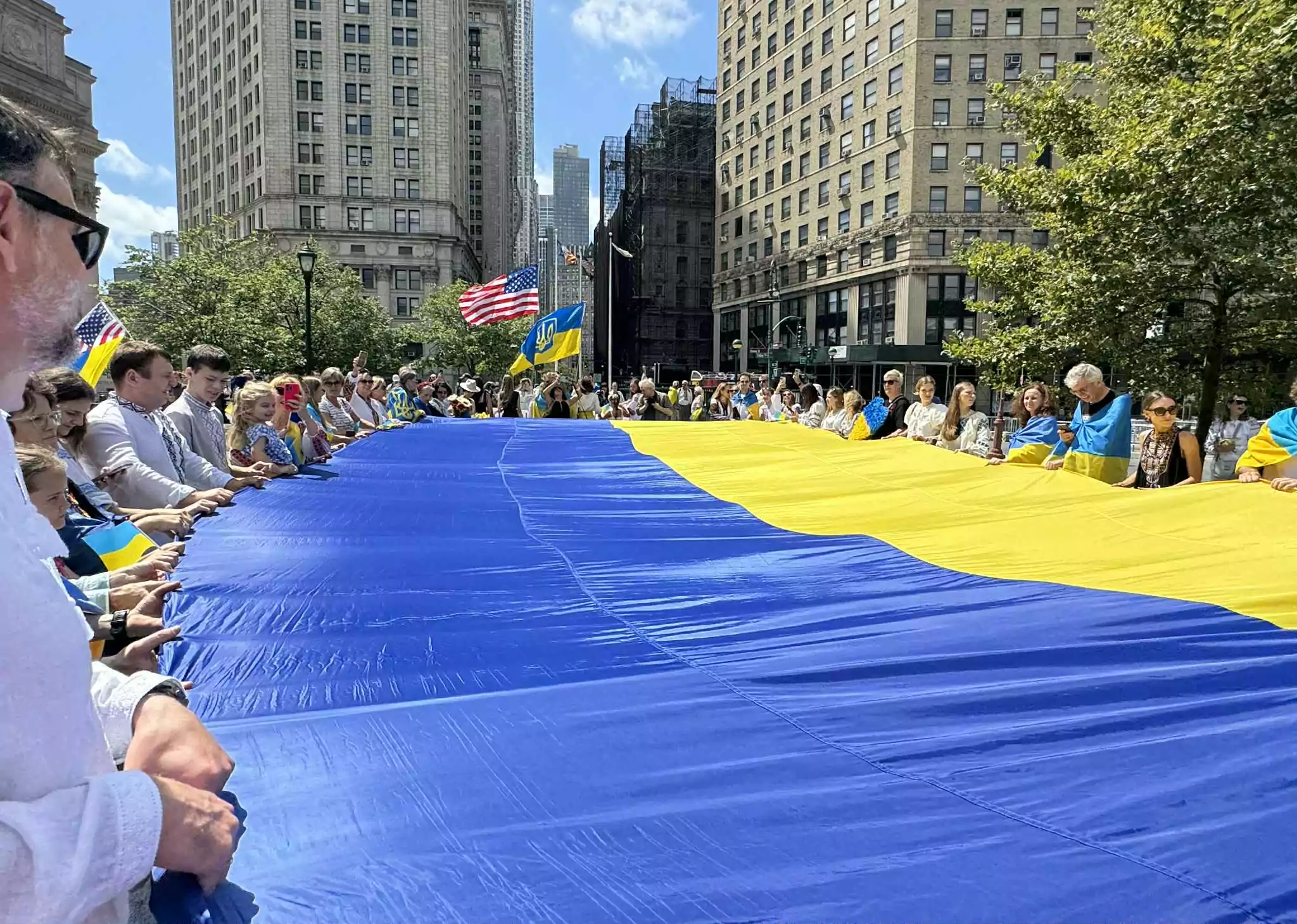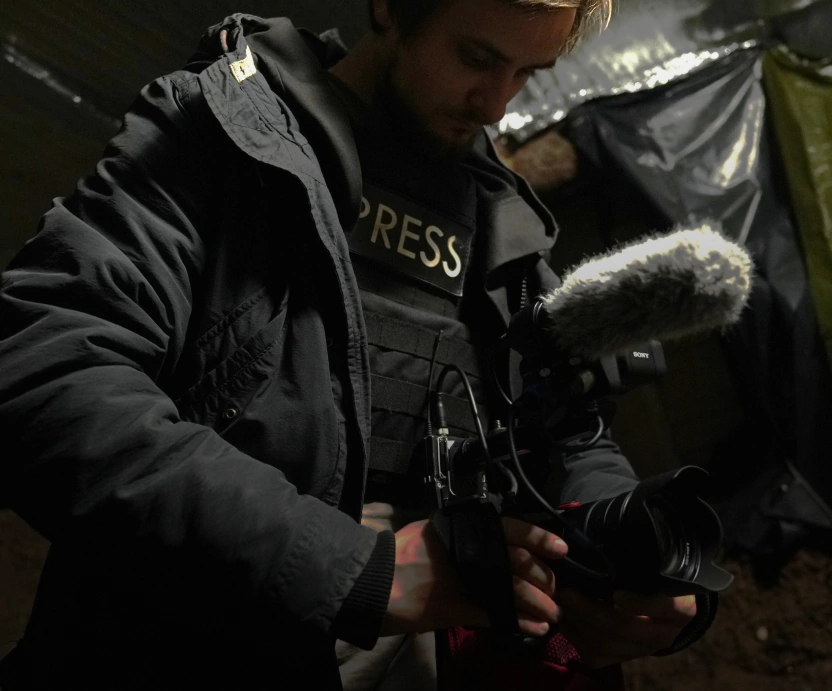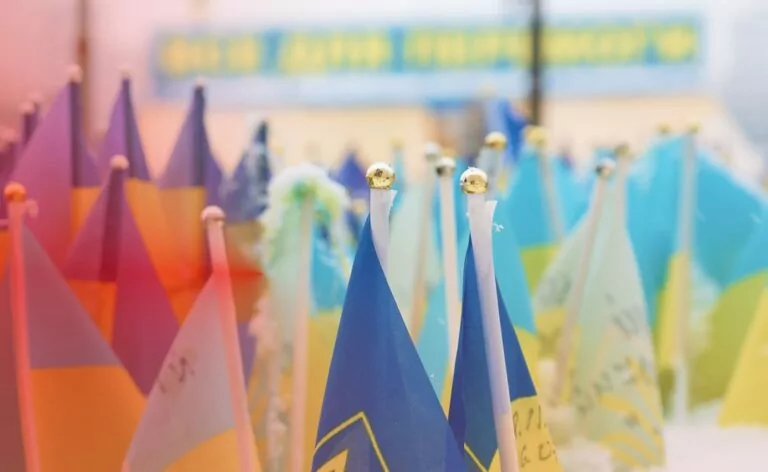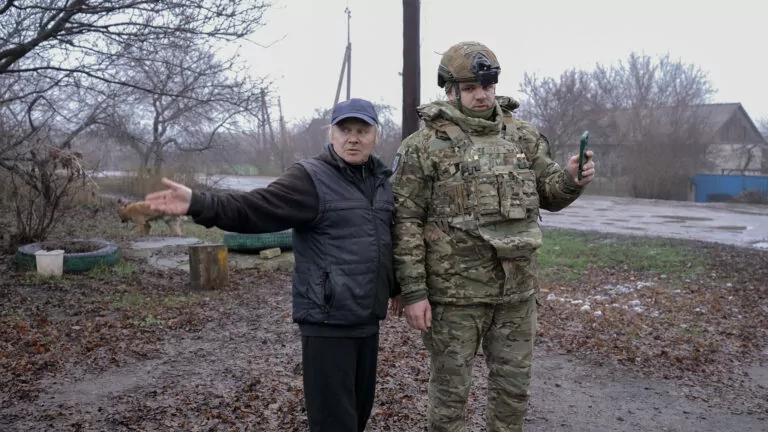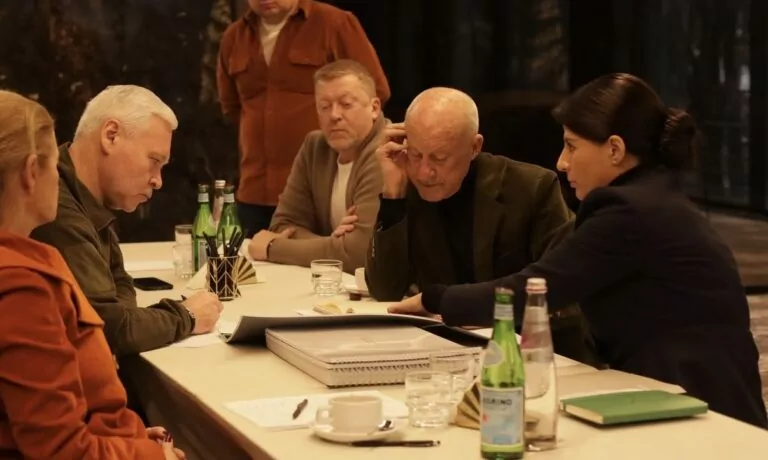Olena Blyednova is Ukrainian who moved with her family in New York. When Russia launched a full-scale invasion of Ukraine, Olena started volunteering in the USA, and her daughter returned to Ukraine.
Now, Olena regularly attends pro-Ukraine rallies, participates in the cultural life of the Ukrainian community in New York, creates sand animation for children, and supports volunteers in Ukraine.
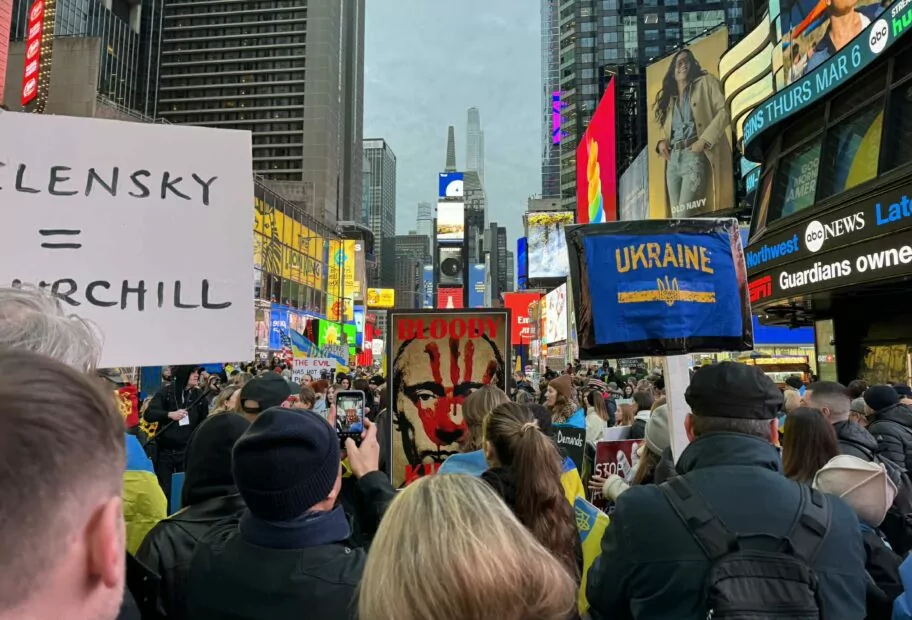
How did you start volunteering?
Like many Ukrainians abroad, we were trying to figure out how to help in early 2022. Friends spontaneously organized small groups, sending bags of essentials to volunteers who had joined the fight. Everyone has a connection to Ukraine — family, friends, classmates. We all felt a responsibility.
At first, we sent basic gear like boots, helmets, tourniquets, and other medical supplies. Soon after, people began collecting aid for civilians: hygiene items, diapers, and food. Ukrainian shipping services in New York and New Jersey, like Velox, needed extra hands to manage the overwhelming volume. We decided to help.
Later, we joined the non-profit Razom for Ukraine. Meest provided warehouse space where we assembled medical kits for the frontlines.
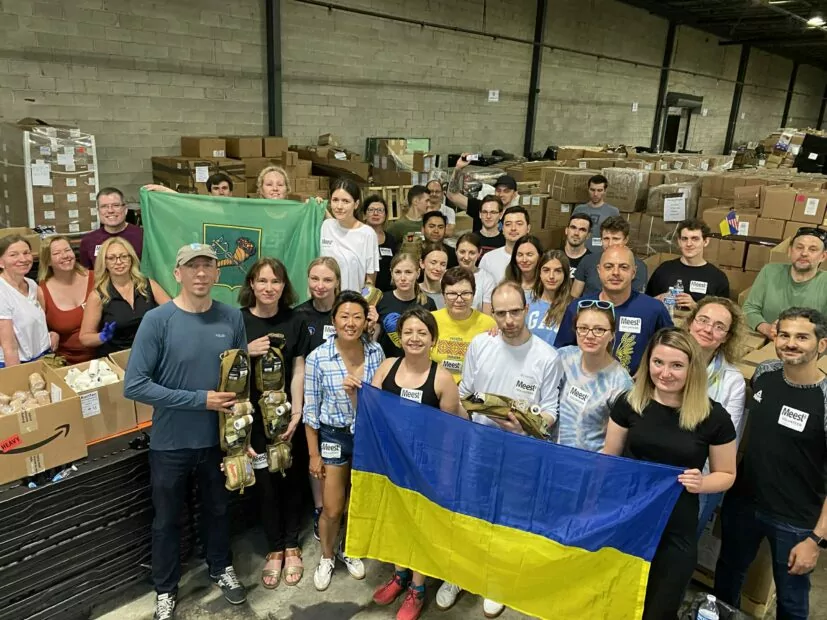
My husband, friends, and I became warehouse coordinators. Dozens of volunteers came each weekend, sometimes up to 40 people, working 5-6 hours.
We set up makeshift assembly lines using pallets as tables, passing items down the line: tourniquets, bandages, emergency blankets, markers — kit after kit, box after box.
Over time, we also began assembling tactical medical backpacks for combat medics. These were heavy, up to 20 kg, packed with essential supplies like splints, trauma tools, and medications.
We relied on everyday travelers. Citizens and visitors just agreed to carry bags to Poland: Warsaw, Kraków, Rzeszów. We organized everything through Facebook groups and spreadsheets. Volunteers signed up, we labeled bags, and a driver packed them up into a van. They went to Lviv, got sorted, and distributed to recipients.
We jokingly called our initiative the “People’s Lend-Lease”.
One volunteer said, “We’re like ants: gathering, organizing, delivering.” That’s exactly how it felt. A huge, self-organized community that simply made things happen.

Were there any funny or memorable stories that happened along the way?
Once at the airport, one guy got really caught up watching our usual bag-drop process. He was sitting there with his luggage, completely mesmerized by how smoothly we worked. Bag after bag, person after person. At some point, we accidentally placed his suitcase along with the others in our queue!
When I started writing down the tracking numbers, he suddenly said, “Hey, you took my bag!” All of us burst out laughing. He said, “I got so inspired watching you Ukrainians work together like this. Completely zoned out, and the next thing I knew, my bag was already lined up with yours!”
It was such a heartwarming moment.
Do you help people in Kharkiv specifically?
Ah, Kharkiv (Olena takes a deep breath). Since the start of the war, so much has happened. I graduated from I graduated from V.N. Karazin Kharkiv University. Kharkiv oblast is home to many STEM specialists. I also have close friends in Piatykhatky (a suburban village just next to Kharkiv that frequently suffered from Russian air raids — ed.).
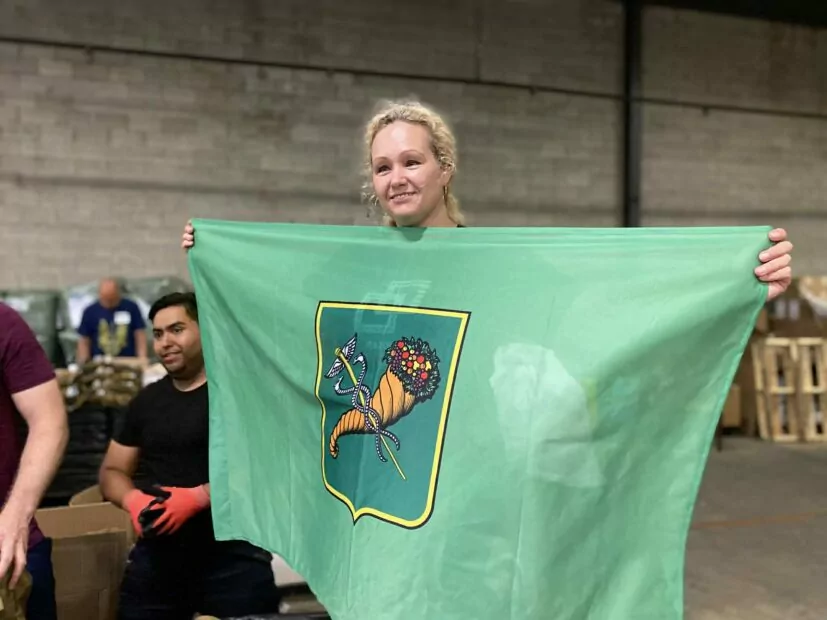
We supported Ukrainian volunteers who evacuated civilians from across the Kharkiv region and kept sending supplies like medical aid, straw mats, and other essentials. Organized children’s art contests with locals and sent puzzles, art kits, and other small prizes.
When I visited the city, we held events for displaced children and schools in Piatykhatky and Malynivka. I led sand animation workshops and taught local instructors how to use sand art to work with kids.
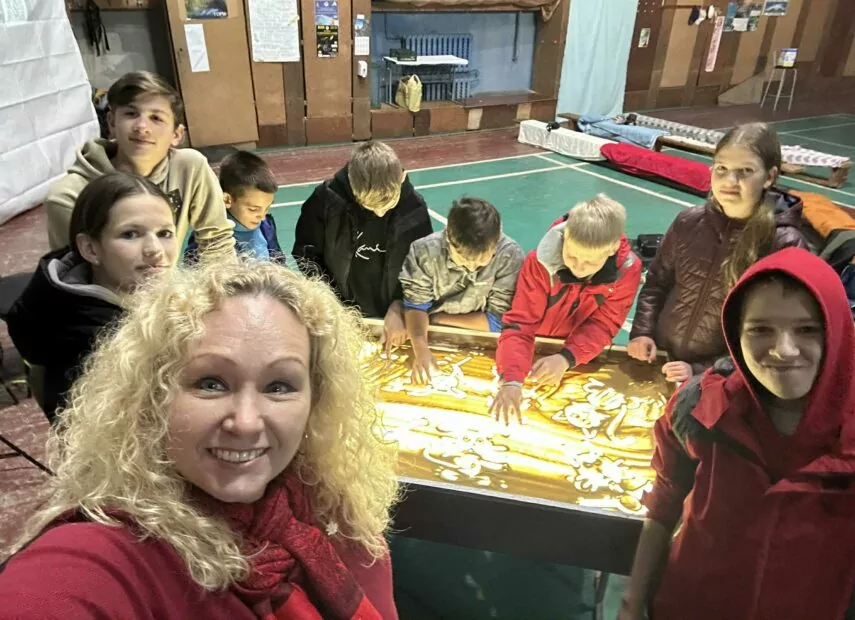
We also sent several large boxes with roller skates and skateboards for children in Kharkiv, to give them something joyful to do during the summer.
You were in Kharkiv after the Russian invasion. How did you feel?
Kharkiv has changed.
What struck me the most when I visited was how few children I saw outside.
There were no grandparents with kids with backpacks heading to clubs or sports practice in the afternoon like before. Some mothers walk with their children, but still… It felt noticeably different.
On the other hand, Kharkiv is clean and alive. In spring, the city blooms with tulips. It’s beautiful and powerful. The clean-up crews are quick after every missile strike. But many buildings, especially in Saltivka and other districts, still have their windows boarded up. That’s hard to look at.
Kharkiv also feels empty without its students, especially the international ones. There used to be so many of them. Now, I don’t see them at all.
It’s strange. When you go to Kyiv or even abroad now and see international students again, you suddenly realize how much that used to be a part of everyday life. It’s a bit of a culture shock, something you didn’t even know you’d gotten used to until it was gone.
How has the situation changed since Trump took office?
Many Republicans actually support Ukraine. They’re conservative, but in a good way. Some of them don’t agree with Trump’s policies, either domestic or foreign. Of course, I can’t speak for everyone. I mostly interact with a certain circle, and I read and hear things, but I can’t generalize.
Around election time, Ukrainian Americans were urging each other to think carefully about who to vote for, even in places like Brooklyn, where the community is large but spread out. We don’t always talk about politics openly.
Many Ukrainian immigrants aren’t citizens yet and can’t vote. But back then, people said, “Please, think carefully. Democrats might be too liberal or seen as weak, but they still provide support. If Trump returns, it’s completely unpredictable. That help might stop.”
After the results, many said it was a wake-up call for Democrats to get organized and find a real leader.
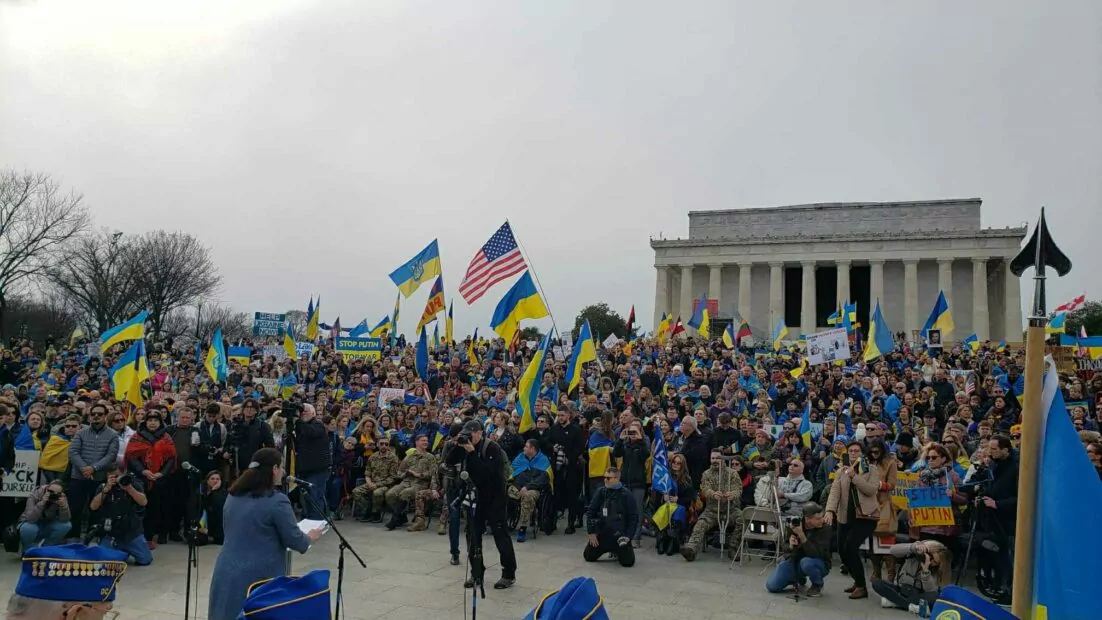
Honestly, from my perspective, it’s surprising that a country as strong as the US, a country that sees itself as a global leader, “the world’s policeman,” can’t produce a clear, worthy leader, whether Republican or Democrat. Where is that person?
We need real leadership. People need direction. We’re all human, flawed, and distracted, and we need someone who inspires, motivates, and helps society evolve and make better choices.
What would you want for the Ukrainian community in New York?
We absolutely need unity. When the war began, the shock brought us together in a powerful way. The sense of solidarity was incredible.
But over time, things started to shift — small competitions, disagreements, misunderstandings. Some teams and organizations began to fall apart.
There was criticism, division. It’s not surprising. It’s part of human history: first we unite, then we drift apart. That’s part of growth. But still, unity is essential.
UPD: We have corrected the company names for Velox International and Ukraine Express. We clarified the information and changed Zhytomyr to Rzeszów. The headline was changed to “We are people’s lend-lease.” Ukrainian in New York about her volunteer work, US elections, and Kharkiv.” Some personal information in the article was removed in consideration of the interviewee’s safety and clarified, at the interviewee’s request.
Hi, this is Nazar. I wrote this article to tell you how Kharkiv locals and Ukrainians in general live abroad, and I am very grateful to Olena for this conversation. If you want to see more human stories from Gwara, please subscribe to our Buy Me a Coffee and Patreon.
Read more
- Russian drone unit Rubicon intensifies operations on Kupiansk axis, Ukrainian military reports
